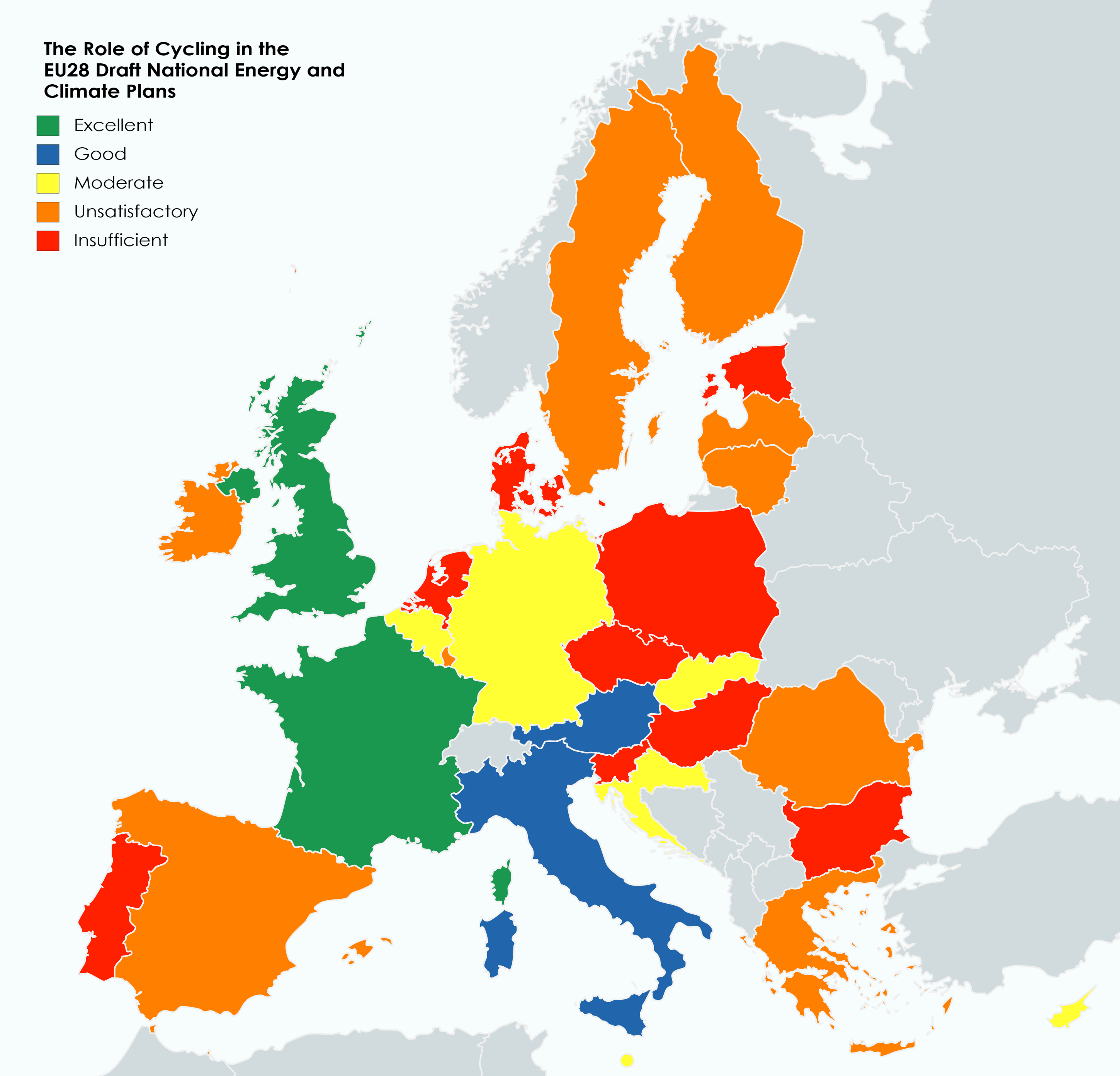
Cycling is overlooked in Member States’ Draft National Energy and Climate Plans: an ECF analysis
As part of the EU’s Energy and Climate Policies 2030, Member States were required to develop national Energy and Climate Plans (NECPs). ECF’s analysis of the 28 draft NECPs draws the conclusion that cycling is not yet adequately represented as a fully-fledged solution to slash carbon emissions in the transport sector.
To score the draft NECPs, ECF selected a set of thirteen indicators. In particular, we paid attention to four major elements: a reference to cycling and a modal shift goal; a commitment of making public investments in favor of cycling; a clear reference to national cycling strategies, active mobility laws and Sustainable Urban Mobility Planning; and references to targeted pro-cycling measures.
This assessment has allowed us to cluster the countries’ Draft NECPs into five categories according to their score, from an insufficient – or inexistent – to an excellent role for cycling:
- France and United Kingdom are the sole two Member States to hit an “excellent” mark, thanks to a strong reference including a clear budget, commitment to modal shift and reference to a cycling or active mobility law;
- Austria and Italy get a “good” grade as they manage to clearly reference cycling in their Draft Plans, thanks to numerous indications on the implementation of pro-cycling policies towards climate change mitigation;
- Six countries – Belgium, Croatia, Cyprus, Germany, Malta, Slovakia – obtain an honorable grade, as they make a “moderate” reference to cycling, providing the essential information on pro-cycling measures to be implemented;
- Nine Member States – Finland, Greece, Ireland, Latvia, Lithuania, Luxembourg, Romania, Spain, Sweden – have made minimum efforts in referencing cycling, that we judge “unsatisfactory”;
- Finally, nine other countries – Bulgaria, Czechia, Denmark, Estonia, Hungary, Netherlands, Poland, Portugal and Slovenia – fall in the lowest category due to an “insufficient” (or even inexistent!) place given to cycling in their Draft Plans.
We want to stress that our approach was strictly limited to assessing the place of cycling within the NECPs and should not be understood as an evaluation of the EU countries’ cycling policies as a whole. However, it is striking to note that two thirds of the EU countries have failed to make a decent reference to cycling in their draft NECPs. Translated into numbers, the overall assessment of the EU-28 countries combined only reaches a 3/10, a clearly unsatisfactory result regarding the EU objectives in reducing GHGs.
For ECF this means that more efforts need to be made for a better consideration of cycling – and more generally active mobility – in the final National Energy and Climate Plans that Member States have to submit to the European Commission by the end of year 2019.
“While the transport sector remains one of the largest challenges in climate change mitigation, the EU Member States must ensure they put cycling at the forefront of their mobility policies. We still have 6 months to tell Member States they can and should do much better. Let’s use that time as good as we can!”
- Fabian Küster, ECF Senior Policy Officer
Link to the document
Regions:
News category:
Contact the author
Recent news!
Upcoming events
Contact Us
Avenue des Arts, 7-8
Postal address: Rue de la Charité, 22
1210 Brussels, Belgium









